There are two ways to get into Sierra Leone: the normal way (if going at all is normal), and the way we went. We knew that the former – flying into Lunghi airport – was not for us.
We’d been staying at a strange hotel near Kindia, in Guinea. That hotel and all the other hotels in town are outside the centre and purpose-built around tacky nightclubs. Kids come from Conakry, the nearby capital city, to party. It’s a bit of a grim scene. We flicked on the aircon unit and a dead lizard fell out of it and landed on the floor with a cold splat.

We had signal on one of our phones, and no internet access at all – there are no internet cafes and wifi is virtually non-existent. Zipping into the city on the back of a moto-taxi, we sat at the table in a dark chop-shop – a local restaurant serving the ubiquitous rice-and-sauce mainstay of the West African diet. Eating our plate of rice and sauce, we talked about what to do next. There is little information available on Guinea (even if we could get online), and even less on how to get from Guinea to Sierra Leone, so we were going to have to wing it.
We were around three hours away from a village called Medina Oula, where there is a small and remote crossing point. Some distance beyond that on the other side is Outamba-Kilimi, Sierra Leone’s oldest national park. We decided we’d leave Kindia and its nightclubs behind early in the morning. We’d get to Medina Oula by yet another crowded sept-place (share-taxi) and then hopefully find motorcycles to take us from there. We didn’t know what awaited us on the other side of the border, but we were keen to find out.
So, we went to the market and bought rice, onions, tomato paste, garlic and some chunks of pumpkin to make our own rice and sauce; and we sought out a money changer who swapped a couple hundred Euros into Leones for us. We wanted to arrive in the next country prepared, although prepared for what, we weren’t exactly sure.
Medina Oula is indeed a small remote village, with customs and immigration formalities carried out in a little station in the middle. Once the police officer had stamped us out, I pointed down a long red dirt road disappearing into the distance and said ‘To Sierra Leone?’ The officer laughed and said ‘Oui, Sierra Leone.’
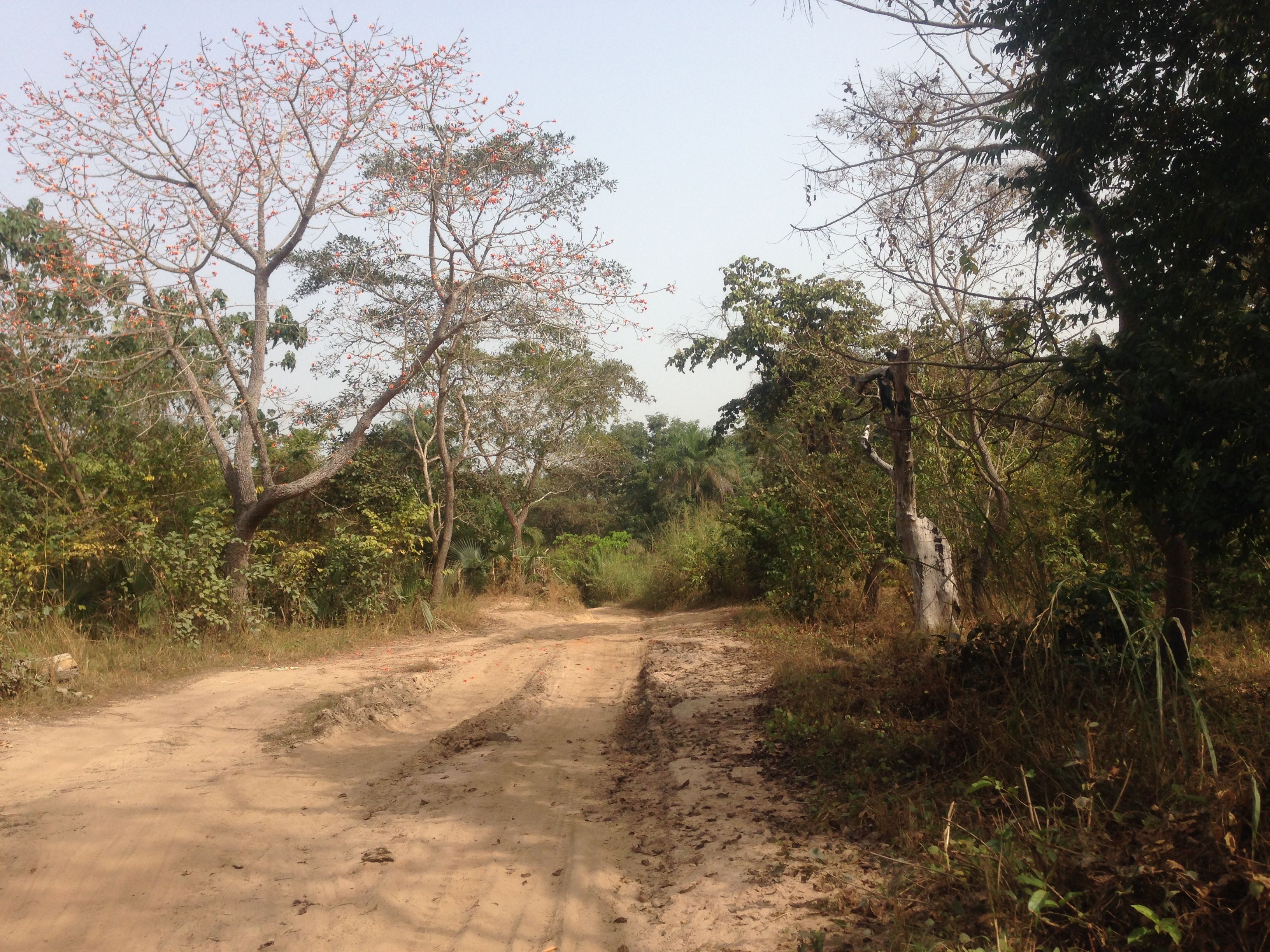
Since the no-man’s land here is around 10 kilometers long we needed a ride to the Sierra Leone border post. So we went around the corner and entered into lengthy negotiations with a pack of moto-drivers and other interested bystanders.

Eventually, backpacks strapped to the bikes and bribes paid by the drivers to the soldiers at the frontier, we were racing down the long red dirt road between two countries.


The Sierra Leoneans welcomed us heartily on the other side, which was nothing more than a couple of cinderblock huts in a clearing with a tree branch placed across the road. They let the Guinean moto-drivers take us to the next village.
It was Christmas Eve, and the villagers there were full-swing in party mode.

We blazed through the market on our bikes and quickly drew a curious crowd. Two more moto-drivers here agreed to take us the rest of the way to the national park.
And so with the involvement of pretty much an entire village on either side of the border, we went from Guinea to Sierra Leone the hard way, through the jungle on the backs of two bikes.
We arrived at Outamba-Kilimi, filthy from two hours’ travel on the red dirt trails.
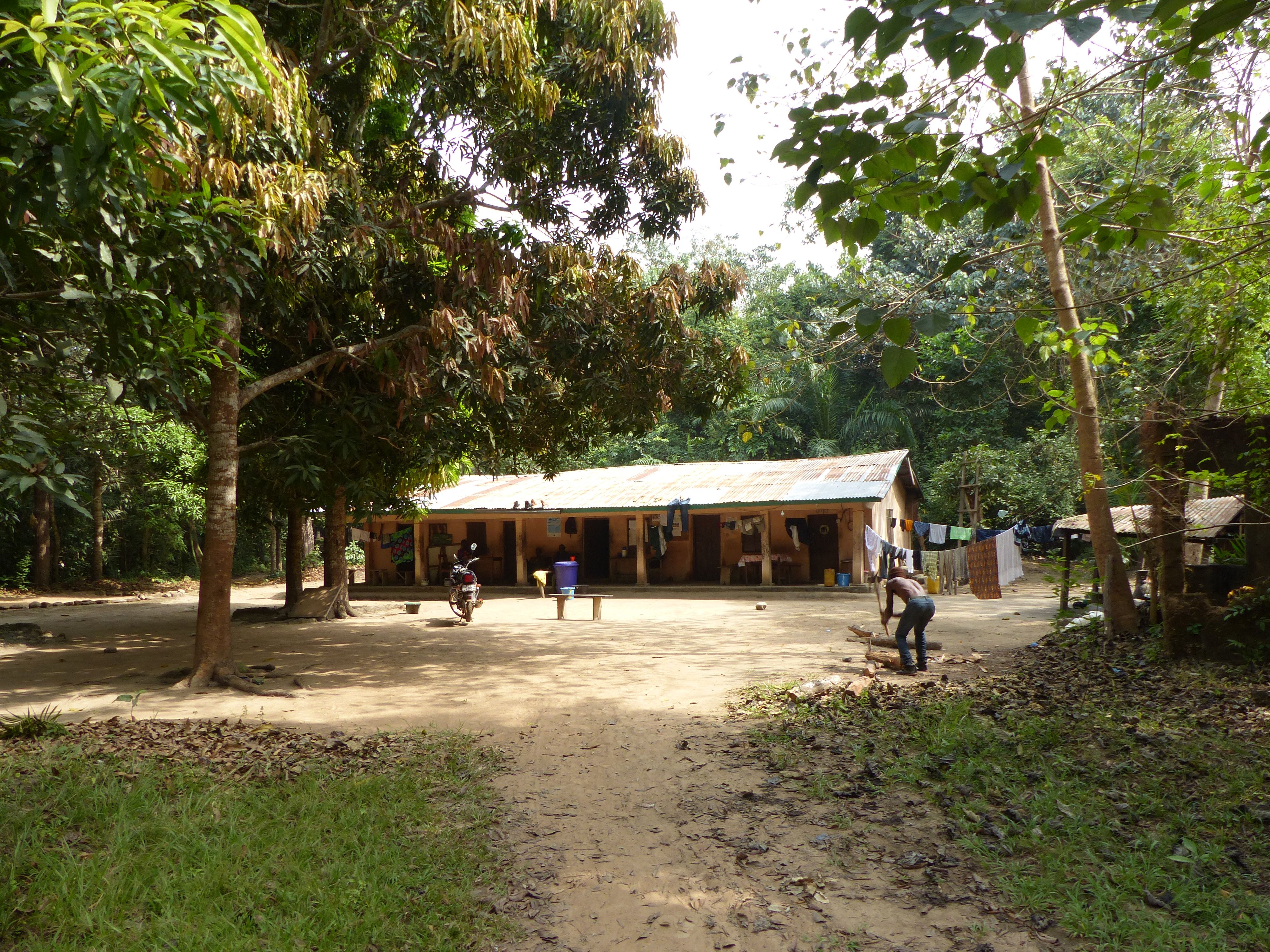
The staff informed us immediately that the (only) other guest in the park was a Canadian here to research chimps. He was the first in a series of expat aid workers or researchers we’ve met here in Sierra Leone. The conversation goes the same way every time:
Aid Worker: ‘So, which NGO (Non Governmental Organisation) are you with?’
Us: ‘Oh, none…we’re travelling.’
Aid Worker (eyes widening in disbelief): ‘You’re tourists? Here? In Sierra Leone?’
Us (glancing sidelong at either a panorama of stunning nature or a pile of smoldering rubbish, whichever the case might be): ‘Sure, we came by road from Dakar.’
Aid Worker (after a short silence): ‘You’re on holidays in West Africa? How did you get here?’
Us (grinning in slightly unhinged manner): ‘You know, public transport.’
Aid Worker: (chokes on beer)
We stayed in a hut in Outamba-Kilimi’s tiny camp on the banks of the Little Scarcies river. We washed up in the river, and Oyv made us a fire.
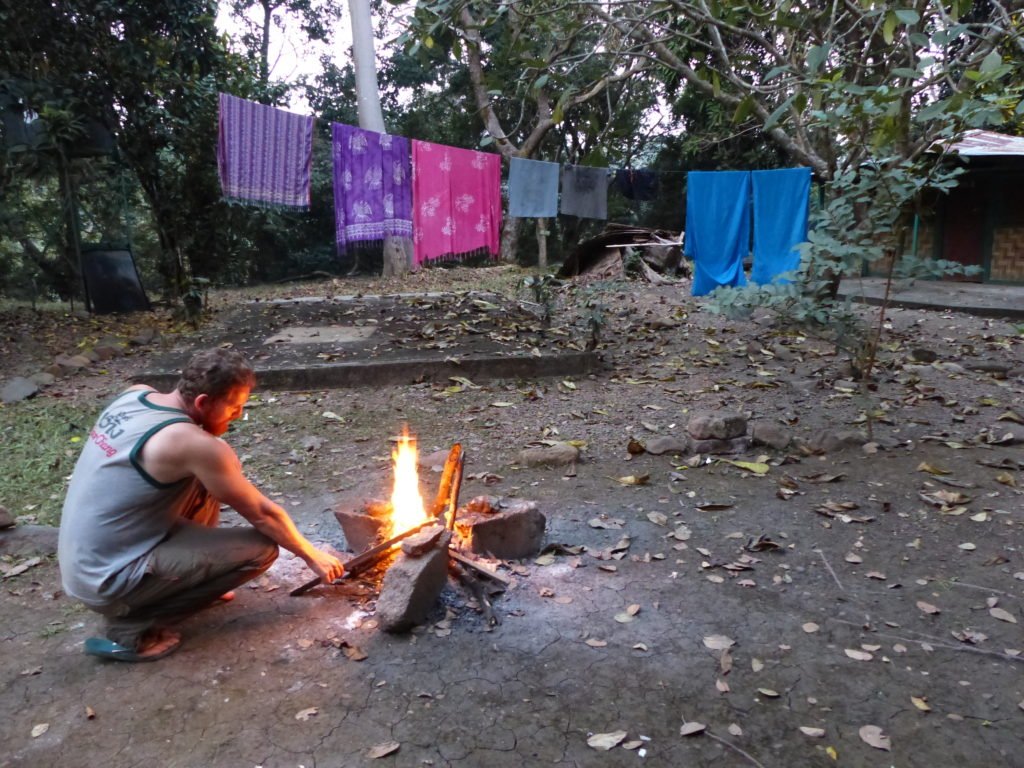
On Christmas day we chipped in on a goat with our fellow-camper.
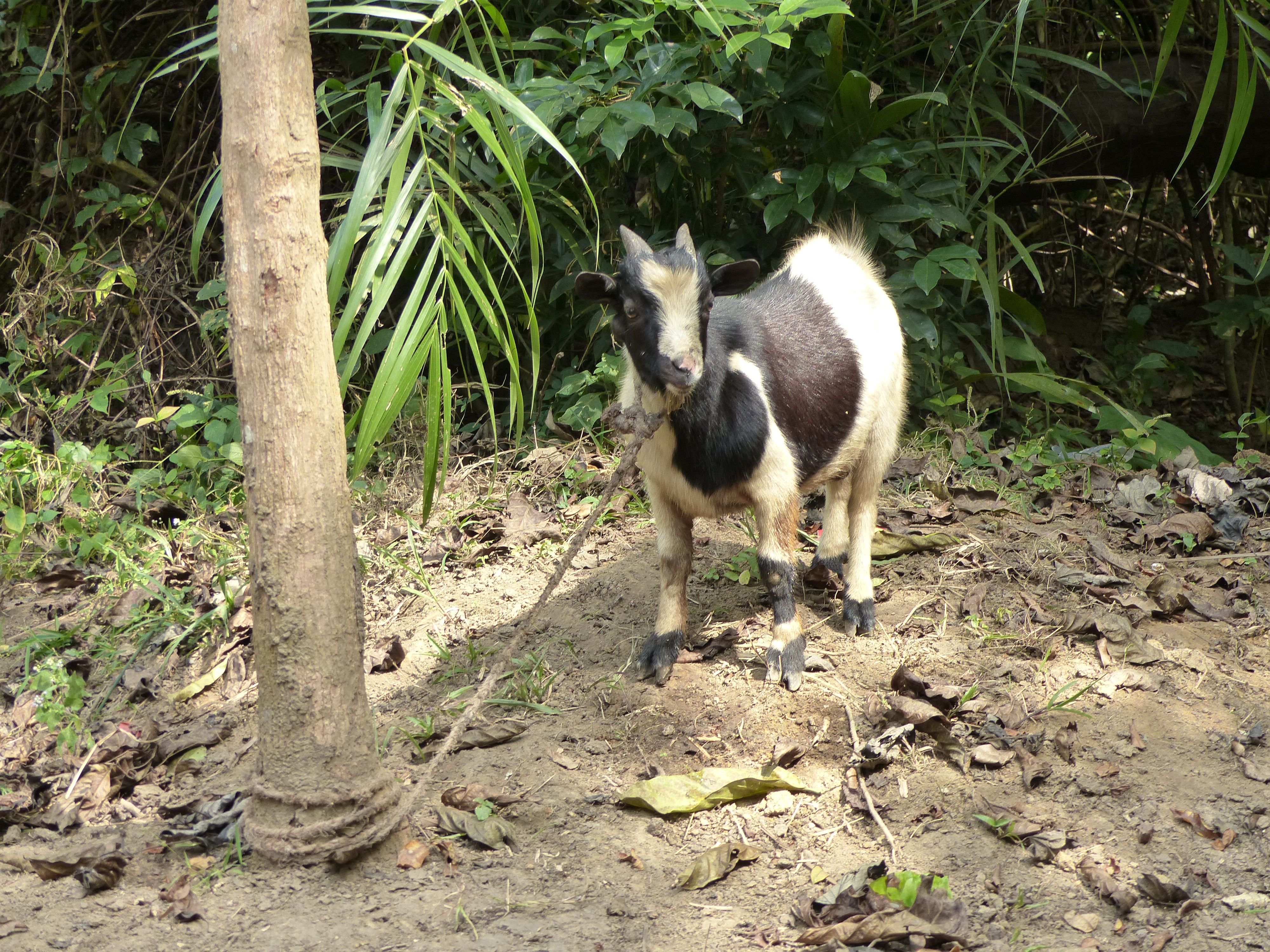
The park staff did all the…’prep-work’…and we ate Christmas dinner together.
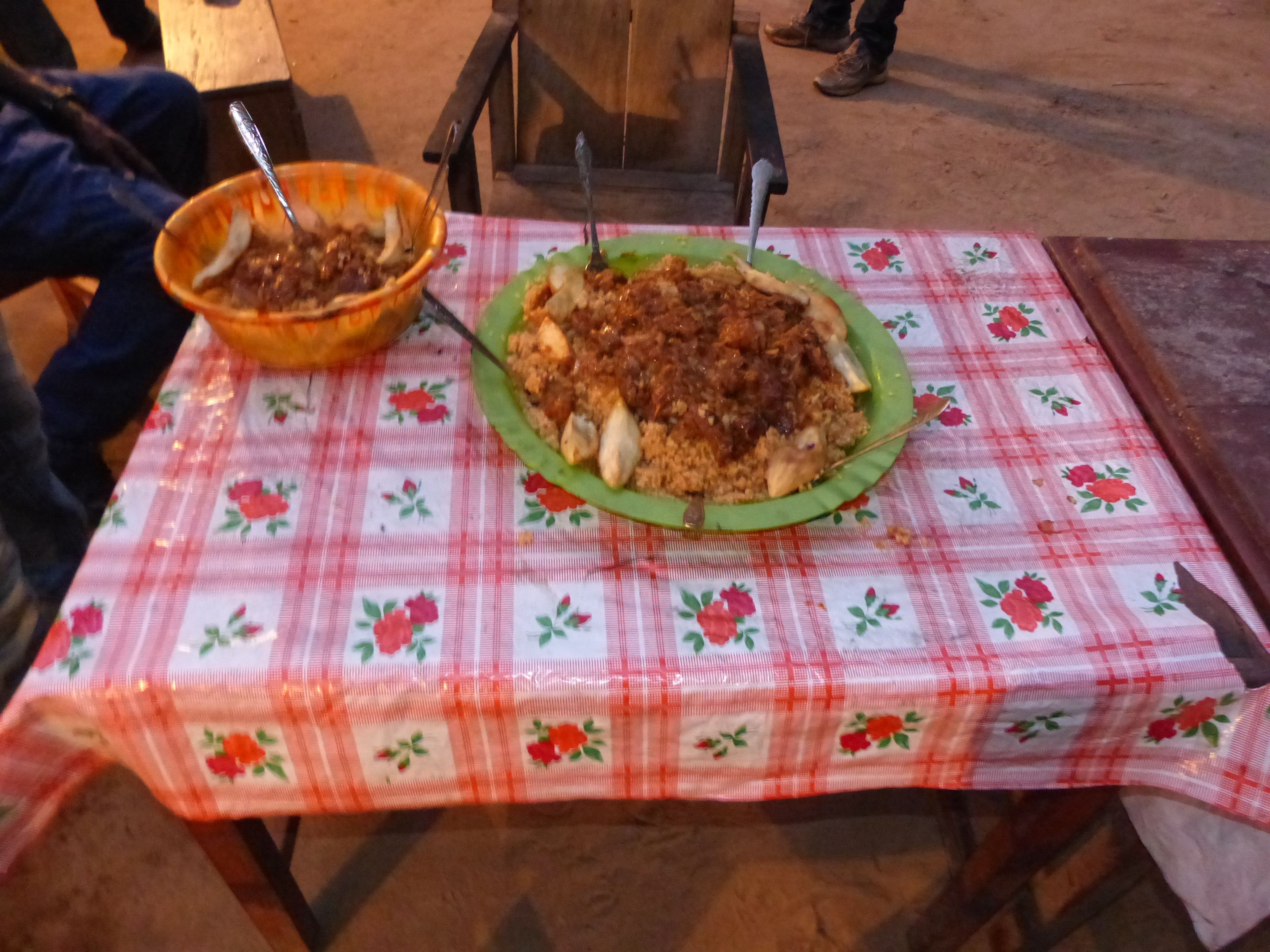
The camp is definitely rustic. In lieu of a chicken coop, the camp staff file the chickens away in this old cabinet at night:
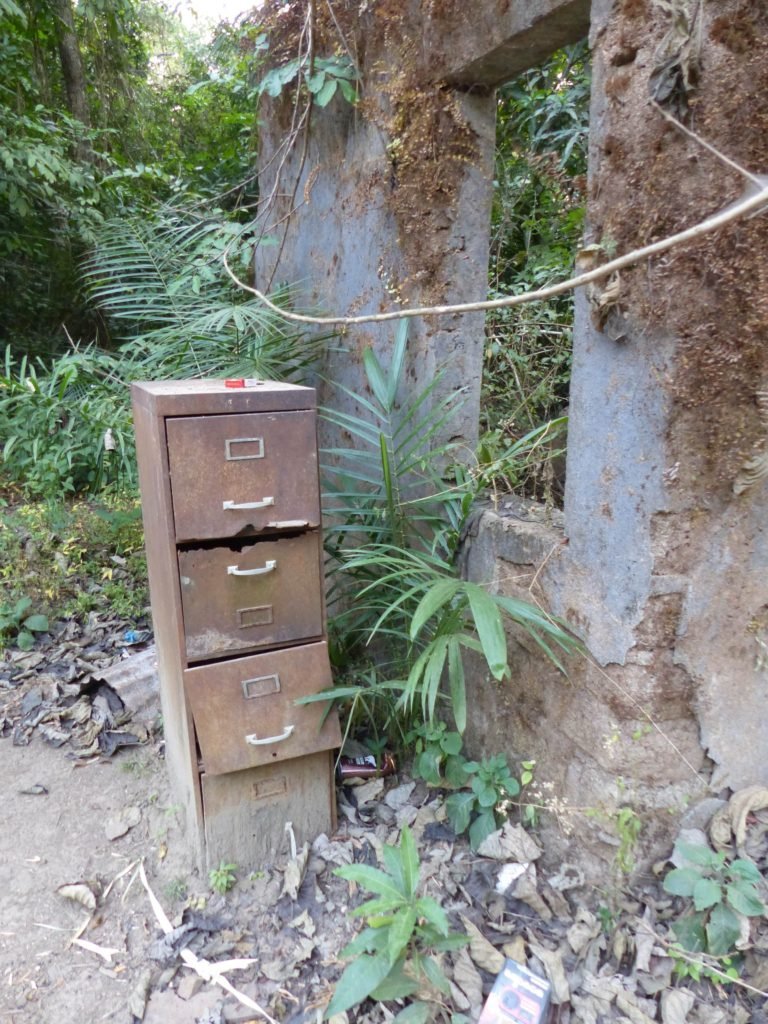
And of course, nothing goes to waste:

While we were in the park we also did some hiking. One day a guide took us out on the river in a leaky canoe (what other kind would there be?) to do some hippo-spotting.

On motorbikes again, we tore off to Kamakwie and then caught a poda-poda (mini-bus) on to Makeni. Here’s Oyv helping to pull a ferry across the river:

The various modes of transport may have different names in different places, but some things never change. Just like anywhere else in the region, the drivers pack every vehicle so full that the conductor uses a couple of attempts to forcibly slam the doors shut on passenger’ legs, and then has to climb back in through the window – or else ride outside.
As we travel through busy towns and small villages, we’ve met with interest and friendliness from the local people.


With one exception: we scare some of the smaller kids in more remote areas to death. They’ll burst into tears, scream at the sight of us, and run away. White people don’t pass through these areas that often. When we do, parents find great entertainment in their kids’ reactions to us. They’ll go as far as to point us out and then drag their screaming offspring over to say hello. But most kids love us and want to play.
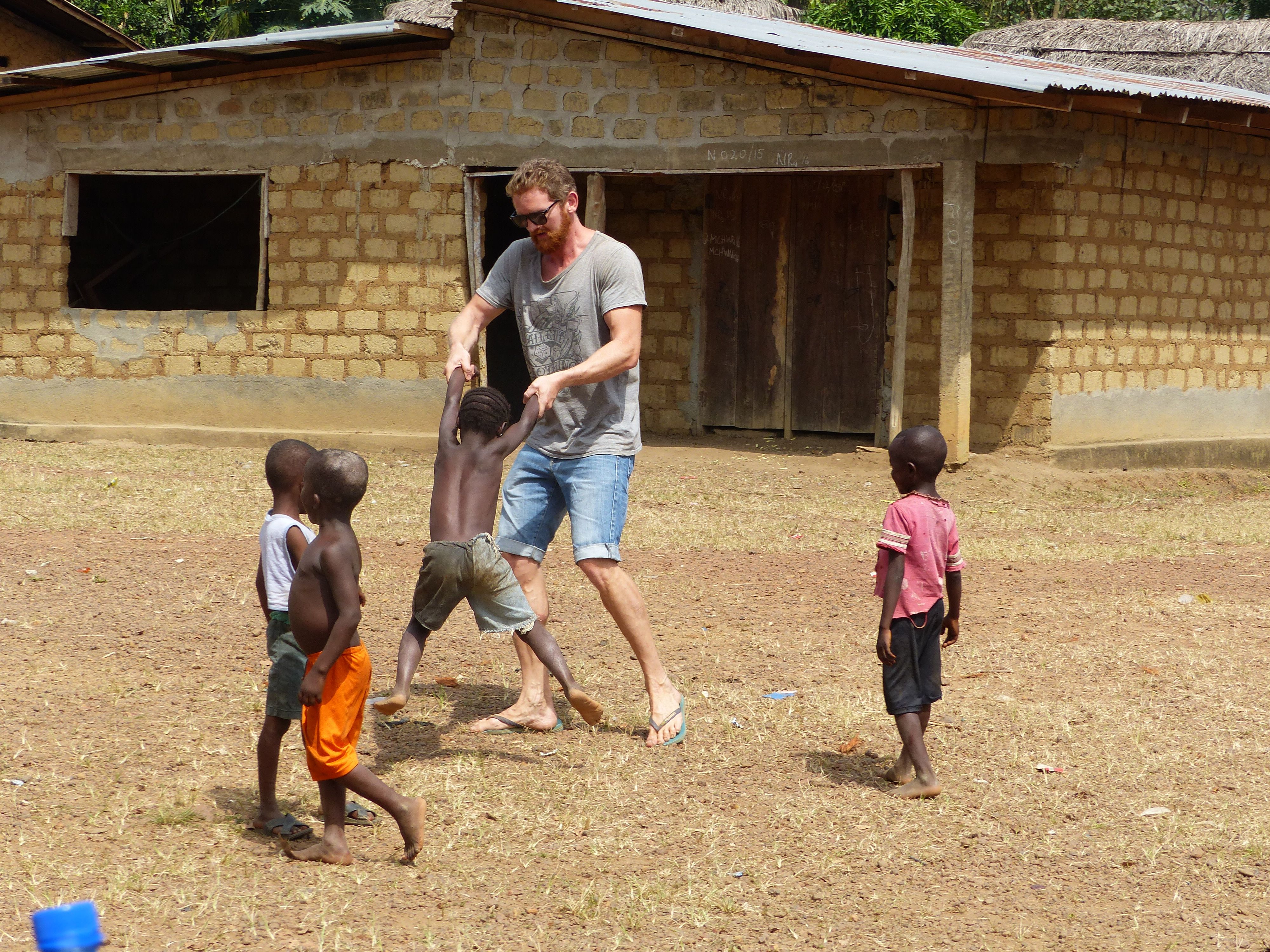
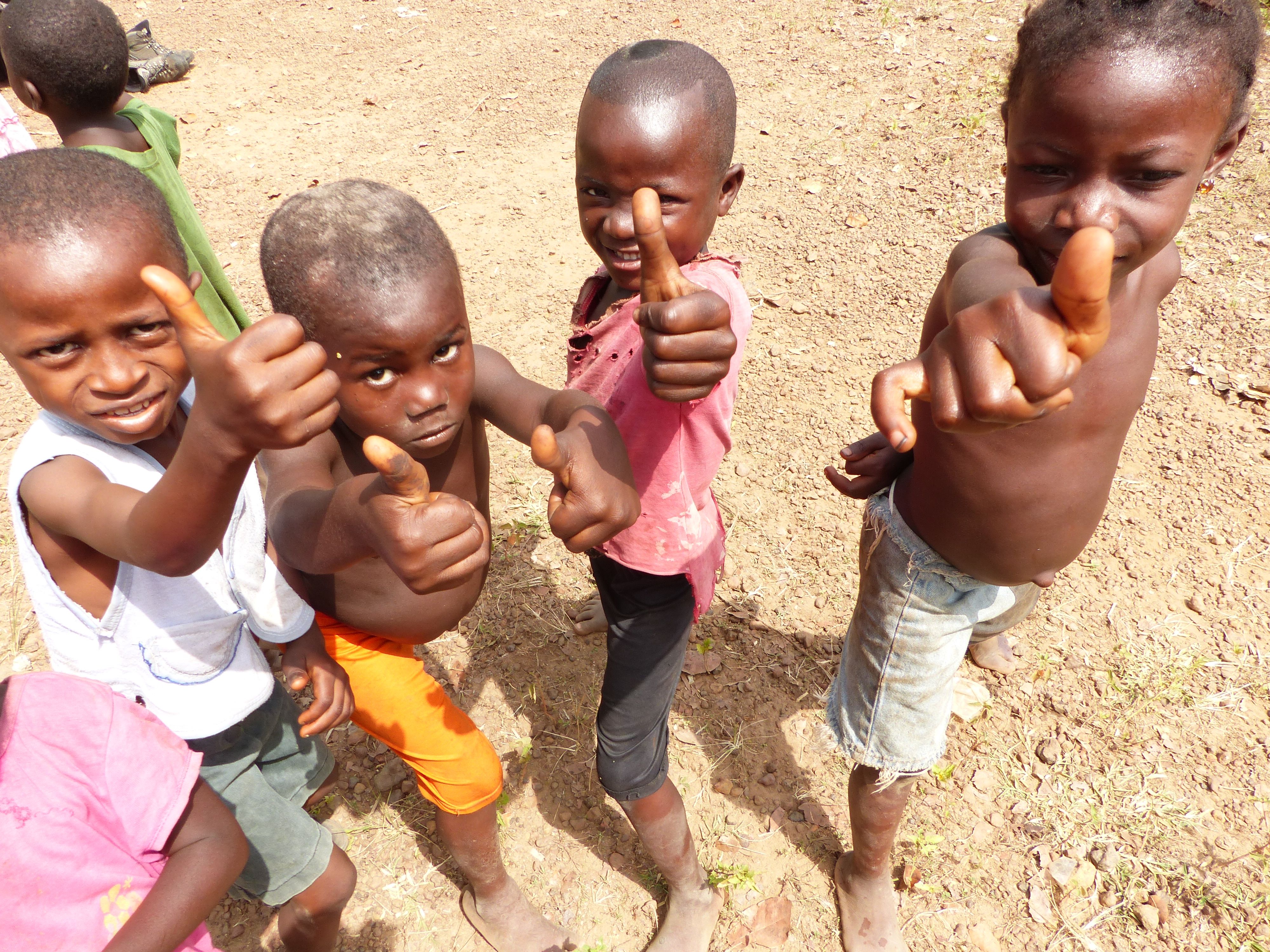
It’s true that we have met only a few other travellers during this entire trip. We certainly draw looks from every local person we pass when we clunk by in an overcrowded sept-place or whip past on the back of a moto. The foreigners we’ve met here in Sierra Leone are always aid workers or researchers of some sort. We met a Frenchman on the beach one day, working for a European Union aid program. We talked about our travels here and the total dearth of tourists. He called us ‘Pioneers’ and that struck us as pretty fitting, here in Africa’s Wild West.
Read More
Check out the rest of my stories from the road, for more of our adventures (and misadventures) in Guinea and Sierra Leone.
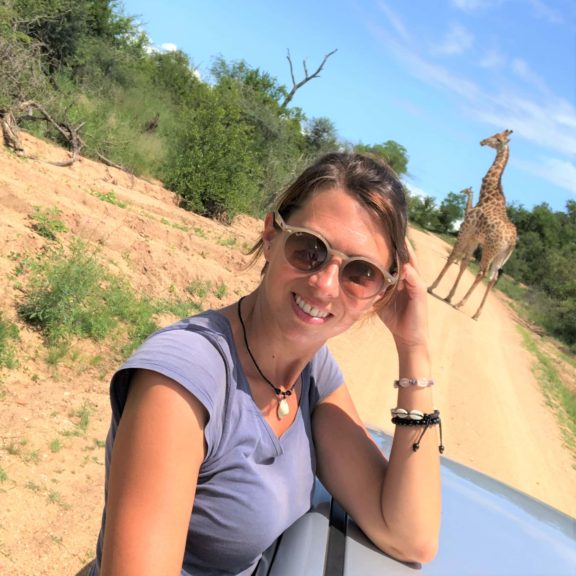
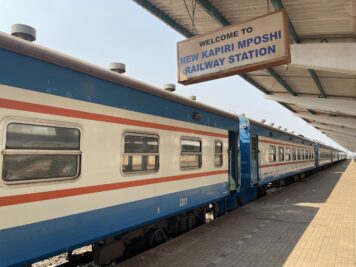
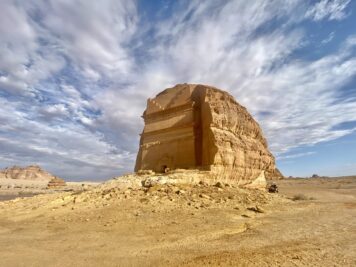
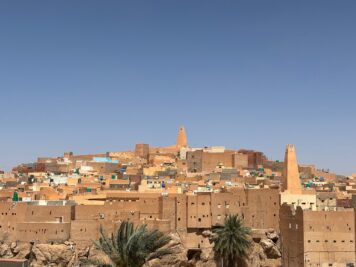
This Post Has 4 Comments
A very good read, and entertaining to boot! Thanks for letting us in on your travels.
excellent travel info,did East Africa Egypt to Namibia overland back packing.Year from now West Africa top to bottom.
Thanks, hope it helps! Travelling around here is definitely a little bit different:) I’m back in West Africa right now so I’ll have some more updates coming up.